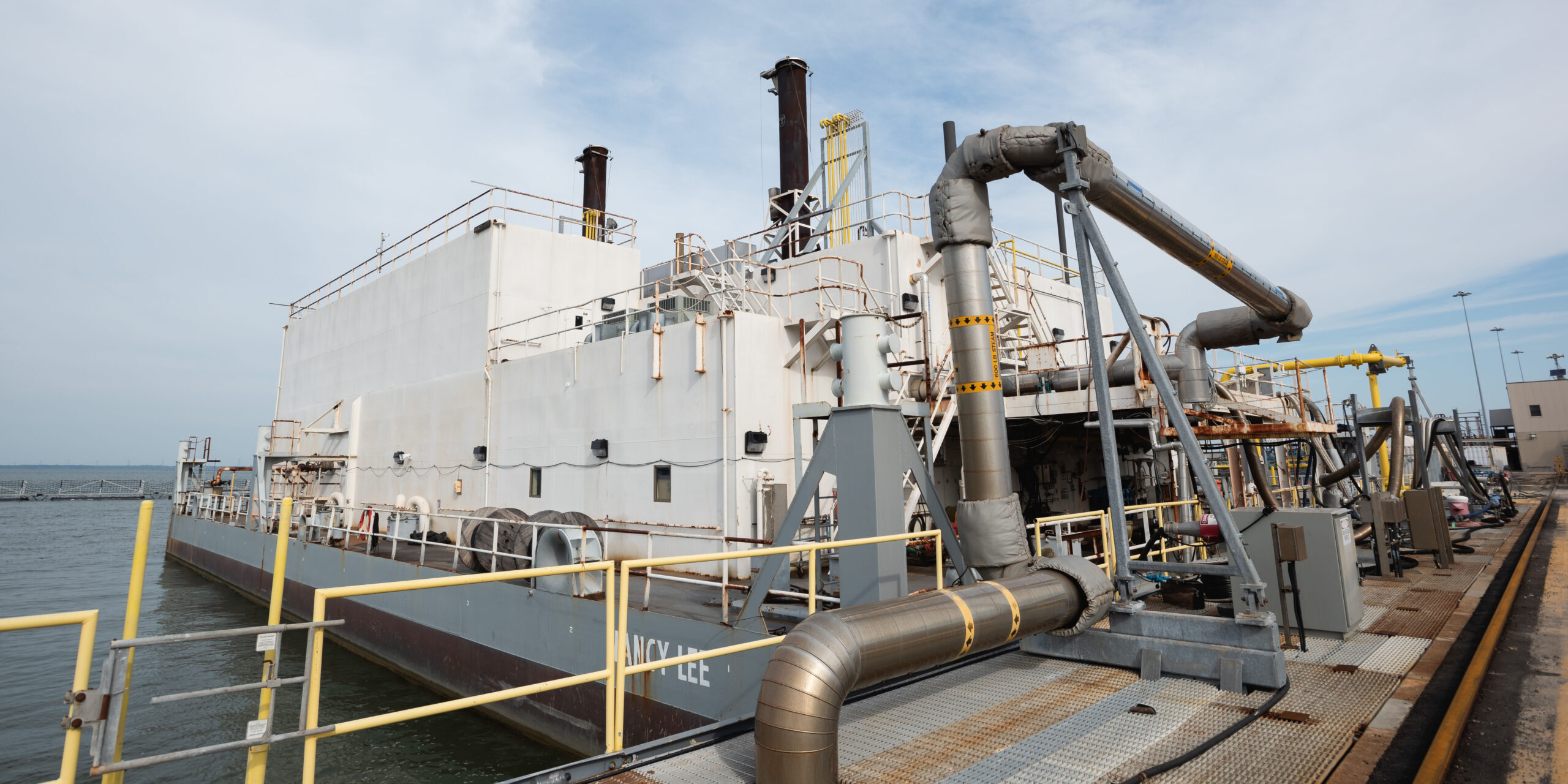 Nancy Lee, Newport News Shipbuilding's steam barge, is now powered by natural gas instead of liquid fuel.
Nancy Lee, Newport News Shipbuilding's steam barge, is now powered by natural gas instead of liquid fuel. Barge Project Reduces Environmental Impact
Published August 9, 2023
A project that benefits the environment during refueling and complex overhauls (RCOH) has moved full steam ahead at Newport News Shipbuilding.
Nancy Lee, the shipyard’s steam barge, is now powered by natural gas instead of liquid fuel, a conversion made possible due to extensive work by shipbuilders, contractors, and a close collaboration with Virginia Natural Gas.
The 40-year-old barge provides main operating steam to aircraft carriers undergoing overhaul in the shipyard, which enables NNS to perform critical outfitting and testing of equipment. Natural gas burns cleaner than liquid fuel, helping reduce greenhouse gas, nitrogen oxides, particulate matter and sulfur dioxide.
One major aspect of the conversion involved running a gas line through the entire shipyard, which required extensive horizontal drilling. It was also necessary to modernize older boilers to accommodate low-emission gas burners and upgrade the boiler computer controls to align with the new natural gas system.
The project utilized a design-build project management method, which had not been frequently used in facilities projects before, said Michael Vaillancourt, who oversaw the conversion as an engineer in Plant Utility Operations (O46). He has since transferred to E15 Submarine Engineering.
The management method “reduced the overall project timeline, gave us one point of contact for the overall project, and integrated the construction teams into the design effort,” he said.
The fuel conversion and related upgrades reduced the operational complexity of Nancy Lee, and combined with the skilled and impressive team of operators led to a very successful USS George Washington (CVN 73) RCOH test program, according to Vaillancourt.
Not only did the project reduce complexity, it increased reliability. Upgrading the boiler controls helped reduce disruptions and delays in the RCOH steam test program, said Bill Diaz, an X71 superintendent on the CVN 73 RCOH program.
“Any reduction in delay to the steam test program is a win for the RCOH team,” Diaz said.
There were no major outages related to the Nancy Lee during the RCOH, and operators found the new system to be much easier to use. That should pay dividends going forward.
The conversion to natural gas “is such an improvement that some of the operators will extend their time here with the company and not think about retirement as often as they did before the conversion,” said Mike Wallace, an O46 general foreman who oversees the Nancy Lee operators.
Michael Dennis, an O27 environmental engineer, was able to put numbers behind the energy savings.
Since the conversion, Nancy Lee has burned about 1,239 million cubic feet of natural gas, most of it during the CVN 73 RCOH. Compared to burning fuel oil, the emissions saved are estimated at 868 tons of sulfur dioxide, 57 tons of particulate matter and 150 tons of nitrogen oxides. Natural gas also creates less greenhouse gases as opposed to fuel oil. The conversion has saved about 31,850 tons of greenhouse gases so far.
“Another positive environmental aspect was eliminating any risk of liquid fuel spills into the James River,” Dennis said.